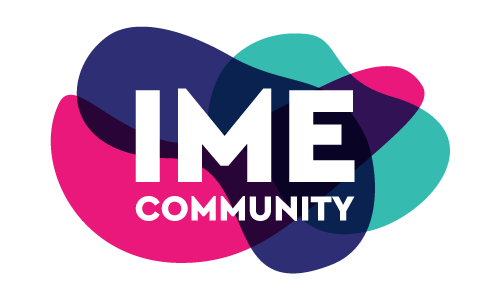
The IME Reverse Your Insulin Resistance Challenge: Week 1 – Introduction
Welcome to the IME Reverse Your Insulin Resistance Challenge (RYIR)! It’s the Kick Yourself in the RYIR Challenge! Yes, my children who are 20, 17, and 14 are making fun of the name. That’s their job to make fun of their Mom.
I’m so excited! I’m having a blast with this. I’m sharing with you all of the details starting with this podcast and YouTube video, which I will be doing weekly, so make sure you like and subscribe to the IME Community YouTube channel and podcast on Apple or Spotify. Make sure you follow @imecommunity on TikTok and/or ime_community on IG. Starting Monday, I will be posting a daily video and do TikTok Lives daily. Teens, 12 to 18, and parents of teens, you can have me as your life coach, so go ahead and Level Up and join the IME Member Community. I created accessibility for The membership, which is only $24.95/month. I coach parents of teens to support their teen’s health independence, in the member community, so awesome deal for the whole family.
About the Reverse Your Insulin Resistance Challenge
First, I am not your doctor or life coach. Go to your doctor. Go to your therapist, dietitian, all the things.
You will learn a lot. This is a fun challenge. I will not be giving you medical advice. I encourage you to go to your doctor, to address diagnoses related to weight first, and to go to your therapist, have your own coach, all the things. This will be a fun adjunct.
What about fitness? Keep doing what you are doing. I believe in all movement counts fitness. Sometimes, at least I know I was, stuck in thinking about exercise the same way I thought about food. So, movement counts. You are an exerciser no matter how much you are moving.
It’s on TikTok, and I will share on my other platforms, is 12 weeks, starting this Monday, so get excited. It’s 12 weeks because that’s what it takes to create a habit stick.
Here’s what I focus on: self-love superpower or the tools of self-compassion; the science behind how to reverse your insulin resistance; and the coaching tools you need to get the goal.
Why Managing Insulin Resistance Is Important
Why? You can listen to my weight loss journey podcast or watch the YouTube if you want. I think it’s episode 7. I also call that shamebuster because if a doctor like me who has done this work for a long time, can say how we’ve got it wrong, anyone can. When I went through my weight and life coaching journey, starting in September, 2017, I was shocked by how much we’ve gotten wrong when it comes to how we address weight loss treatment. I lost 57# in 11 months, but that wasn’t the real achievement. The real achievement for me, was first, that starting with my why, I felt a freedom from thinking about food and my weight. I felt like I was enjoying the moments of my life with a new presence and meaning. Transparency is also very important to me, so not wanting to hide in shame about my weight or going through the fast-food drive thru was important. I wanted to learn to eat foods that fuel my body and never be ashamed of what I was eating. I had also been working to address the childhood obesity epidemic for a long time. Here’s the deal. There’s no summit. There’s no arrival. It’s progress not perfection. It’s all learning. The only summit is the daily intentional practice. One of the other things I learned is what works and where we’ve gone wrong and so I started to bring coaching and The Obesity Code into my clinical practice. Health systems aren’t ready for that. They want the status quo. So, I left and invested in becoming a life and weight coach, took my Obesity Medicine Boards, and created IME Community.
Why Is There an Obesity Epidemic?
Where have we gone wrong? First, look for the singular cause of the obesity epidemic, and it’s our food system with the added refined sugars and ultra-processed foods, food companies have an addiction business model like big tobacco, and combined with the stress of life and then add in fixed and limited diet culture, and we can all easily see why and how we’ve gotten nowhere with addressing the obesity epidemic or helping individuals, which is where I believe the power is. My vision is to create community with compassionate connection, and all of you IME Community Followers are a part of the Community looking to create a healthier path for all of us, but especially for our children and teens. Let’s not let another entire generation of children be stuck in what doesn’t work, and now with pandemic weight gain, our timeliness couldn’t be better.
We are not addressing the core issue, which is insulin resistance.
What is Insulin Resistance?
Insulin resistance is the daptation of our body to constantly high levels of insulin. There are two components, family history and genetics, and the CHO-rich food system we are conditioned to eat. Obesity is hormonal and not caloric. Not all calories are created equal. Calories in, Calories out. Our body weight is at a set point. Insulin Resistance is the Lex Luther in our Superman movie.
How Do I Know if I Have Insulin Resistance?
If you want to read The Obesity Code by Dr. Jason Fung or listen to the audio version which is what I did, I believe you will really find it helpful.
As I launched IME Community, I got on TikTok, and had 5 followers and posted a few videos. Then, video 19, I dueted a post and called out weight stigma and bias in healthcare and it went viral. Then, nothing much after that. So, I started quick weight loss tip videos and my only goal has been to get to 1k TikTok followers so I could do Lives and coach.
How Does the Reduce Your Insulin Resistance Challenge Work?
Week 1, let’s get this party started! The theme of this week is to take action.
Action is how we learn and discover ourselves, grow and evolve, but only if we are creating awareness and putting in the thought work along the way. Action will not be served up to us or delivered in a nice little package. It doesn’t matter what action you decide to take. Just take action and commit to loving your decision. If self-doubt, fear of failure, imposter syndrome, beliefs about your past self are coming up, there’s nothing going wrong. That’s just what our brains do when we decide to take action.
What to expect? Weekly podcasts, Daily videos and TikTok Live coaching sessions. Each week has a theme and builds on itself. Get a spiral notebook or binder to keep track
How to prepare: Make sure you are Following IME Community on TikTok and other platforms. Go to the website: imecommunity.com and get on the email list, podcast and YouTube. I’ll do some IG Live coaching sessions as the audience on IG builds.
Calendarize your time to cultivate a goal you set for yourself. Show up to create results. Watch the video, show up for the TikTok Live, ask your coaching questions, post your wins, and share challenges. Get an accountability partner or partners to help keep each other accountable and on track. You will learn a lot more when you do that. There’s science behind this.
The first week, we are focused on taking action and then starting to plan one day ahead of time, but won’t be focusing on food changes, more like getting an assessment of where you are. Don’t send me your food. I don’t care what you eat. This is you figuring this out. You own this. You can ask me questions, but I don’t give grocery lists.
Be a curious observer of your mind! You are creating self-awareness.
Monday Motivation: What do you want? What’s your desired outcome? What’s your why? What’s your commitment? What do you have to lose if you don’t take action? What will you gain if you take action? What’s in your way?
Tuesday Tracking: Let’s learn to make decisions ahead of time. Making decisions from your higher brain, executive functioning or pre-frontal cortex means you won’t be making impulsive in the moment decisions about food. Plan one day ahead what you will eat and just write down what you are eating on a typical day. We are only learning to plan one day ahead and show up for a plan we created for ourselves. If you want to write your food down at the end of the day, that’s fine too. It’s data.
Wednesday Wisdom: Are you owning your health power? Have you seen your doctor, had your labs, and know your risk factors for insulin resistance? You’re not stuck, even if you have a strong family history or have had insulin resistance for a long time. You can optimize your health. It’s good to have a baseline and embed goals in reality.
Thursday Thoughts: Start daily thought downloads or brain dumps for a few minutes. What are your beliefs about your past self? What about your health now? Your weight now? What are your beliefs about your past weight loss? What are you making it mean about you and achieving your health goals now?
Friday Fun: Here’s my favorite work. Visualize your Future Self who has arrived at your goal! How do you feel as your Future Self? That feeling is what drives the actions to create your results. Our thoughts create our feelings, so, what is a thought that creates that feeling? Think of three Future Self guidewords that motivate you. Mine are Funny, Unapologetic, Firestarter. What are yours? Put them on a post-it note and stick them everywhere and look at them every day.
Saturday Success: How do you measure success? You get to decide. How do you celebrate in ways that don’t involve food? We are learning to lead an exciting life and be in the moment and eat food that fuels our exciting life. (Geneen Roth eating guidelines)
Sunday Strategy: Spend some time reflecting on the past week. What was hard? What was easy? What are you proud of? Remember, to practice self-compassion. Now, put week 2 on your calendar!
Watch the Video Replay
What’s Next in the Reverse Your Insulin Challenge?
Next Up – Week 2: Why do we overeat?
Reverse Your Insulin Resistance Challenge Table of Contents
Week 1: Introduction
Week 2: Why Do We Overeat?
Week 3: Coping with Food Cravings and Urges
Week 4: How Much Physical Activity Is Enough?
Week 5: Social Media Friend Drama
Week 6: Get to Your Natural Weight Set Point
Week 7: Your Metabolic Health
Week 8: Positive Body Image
Week 9: Diffusing Low Carb Confusion
Week 10: Self Love Superpower
Week 11: Stress Less, Sleep More



